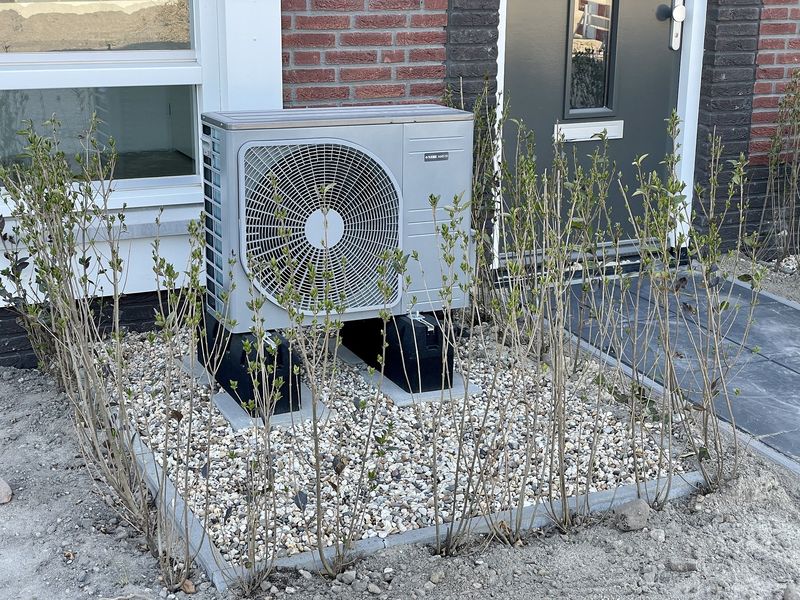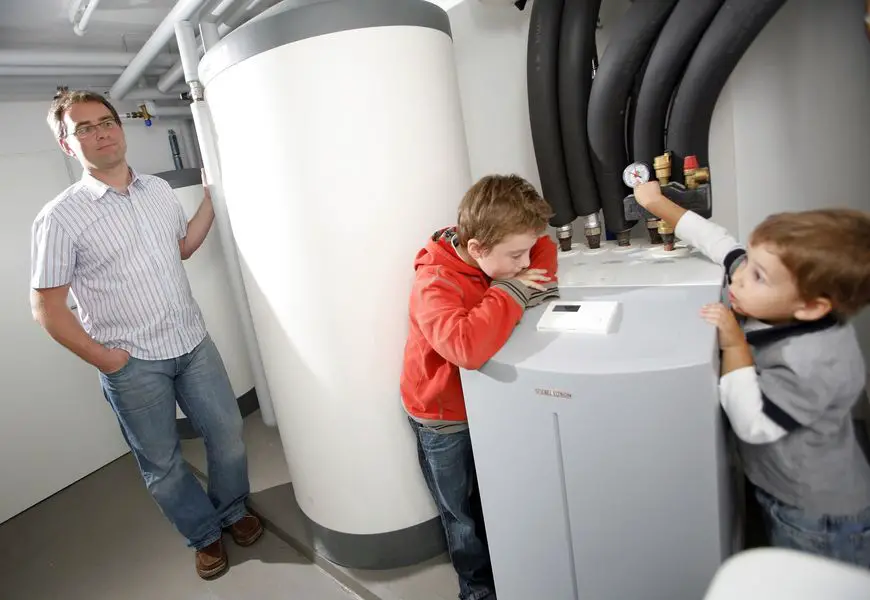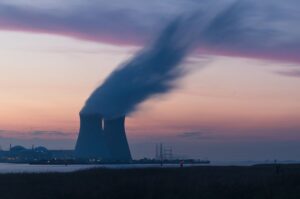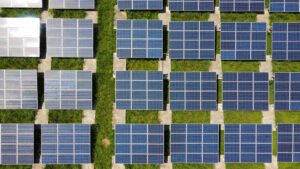Lately, there has been an increase in commercial interest in heat pumps due to their capability to reduce the consumption of fossil fuels and, consequently, the fuel dependency that is compromising household budgets across Europe.
Heat pumps are also considered a low carbon emitter, supporting Net-Zero targets and decarbonization strategies.
However, there are limitations to using heat pumps that cannot be overlooked.

What Is a Heat Pump, and How It Works
Heat pumps are electrical devices that compress a refrigerant agent, causing it to heat up, and transfer this heat into a cooler environment.
Heat pumps can carry out this process in air-to-air systems, transferring the heat through fan systems, or air-to-water, relying on water to circulate the heat through radiators. Both operational modes align well with the legacy heating system that applies a similar process to boilers and gas heaters.
Heat pumps can also use geothermal heat to run. Utilizing the Earth’s natural geothermal energy, ground source heat pumps work by using underground pipes or coils to extract heat from the soil or water beneath the surface.
Advantages of heat pumps
The top advantages of heat pumps are:
- It can be used in cooling or heating systems
- It has a low maintenance cost and a long lifespan
- It has a competitive operational cost, especially when replacing fossil fuels
- Low carbon emissions
Disadvantages of heat pumps
The main disadvantages of heat pumps are:
- Provide a lower heating supply than boilers
- Present a significant loss of efficiency when temperatures are below -20 oC
- They are only cheaper to operate if compared to the current gas market.
Are Heat Pumps Sustainable?
There is a misconception that heat pumps are more sustainable than other heating solutions. Heat pumps are only sustainable if they are being fed by renewable energy sources. Thus, if heat pumps are connected to energy systems that rely on fossil fuels to operate the energy grid, they are not necessarily considered sustainable heating sources.
However, since most heat pumps are installed to replace gas heating systems, there is a direct improvement in the system’s sustainability as there is an immediate reduction in fossil fuel needed to reach adequate heating.
For specific industries, heat pumps are a great candidate to reduce their operational carbon emissions by reducing natural gas consumption during different heating processes in the production line.
Systems re-designed to fit heat pumps are considered greener, more sustainable, and less pollutant, providing industries with an environmentally friendly approach to their supply chain.
How Much It Costs to Install and Run a Heat Pump?
Given the current market scenario, the search for heat pumps has increased exponentially in attempts to avoid the higher gas prices expected. With gas bills estimated to reach record highs, households, industries, and businesses are rapidly adjusting their operation to fit these devices and avoid the estimated financial hit.
When households are not adequately isolated, the heat pumps are forced to work at a higher compression rate for extended periods, as the average house temperature takes longer to reach the desired level. This increase in energy use can be easily converted into additional operational costs, which might mean a higher energy bill. Due to the current gas crisis, this is not expected to overcome the prices of heating a similar space supplied by a gas heating boiler. However, this might be problematic if energy prices rise or gas values are lower.
On top of that, due to the difficulty of reaching higher temperatures when the external air is below -20 oC, using heat pumps is not recommended in places that face such extreme weather.
In most househlods, heat pumps are specifically efficient only when underfloor heating pipes are installed. This process consists of drilling multiple channels on the floor, where tubes/pipes are installed to circulate the warmed water or air. On top of this tubing layer, house owners are required to install specific PVC floors or coating that allow for heat transfer. As heated air moves upwards, the ideal location to install heating systems is on the floor. Still, this process requires intensive labor and risks the destruction of other underlying pipes (for electricity, water, and cabling), which might represent additional costs for repairs. Regardless, there is a significant investment in time, labor, and resources as special technicians are required to remove the floors, install the equipment, and the final floor coating.

How Efficient Are Heat Pumps?
Given that heat pump operation requires the transfer of external air into their compressors when temperatures are below -20 oC, the process becomes considerably less efficient, and there is a significant increase in energy consumption to reach adequate heating temperatures. Moreover, in poorly isolated houses, the ability to provide continuous heating might also be compromised, leading to an unexpected increase in energy bills.
Since heat pumps work through a constant exchange of outdoor air, the overall temperature is lower than with boilers. This means that heat pumps have a lower gradient of heat and provide heating to households continuously but at lower temperatures. At first, this might be hard to adjust, and users might feel the equipment is unable to heat the entire home. However, within a certain operation time, heat pumps can heat an entire house as long as the house has been properly isolated and sources of air draft are minimized.
Lifespan of Heat Pumps
Another concerning aspect of heat pumps is their lifespan, considering that heat pumps are estimated to have a lifespan of 10 to 15 years. Since they present a high investment cost, users are worried that they will not be able to have a significant return on investment within the scope of optimal equipment operation. Along with the initial installation costs, there is a growing fear of the increase in energy prices that would reduce the financial benefits of using a heat pump altogether.
Conclusions
In light of our exploration, heat pumps are a promising solution to Europe’s increasing need for energy-efficient, eco-friendly heating systems.
Their capacity to lessen fossil fuel consumption and support Net-Zero targets places them at the forefront of sustainable home and industrial heating alternatives.
While they boast many advantages, including low carbon emissions and compatibility with legacy heating systems, they have limitations. Their efficiency drops in extremely cold conditions, and the initial investment can be substantial, especially when adapting households to their optimal operation.
However, it’s clear that with the looming gas crisis and the global push towards more sustainable energy solutions, heat pumps will continue to be a topic of interest and debate. Their long-term viability hinges on technological advancements and the broader shift of our energy grids toward renewable sources.
Your thoughts and experiences with heat pumps can provide invaluable insights for others considering this transition. Please leave a comment below to share your perspective. If you found this article helpful, we encourage you to share it with your network. Let’s drive the conversation forward and explore the potential of heat pumps in creating a greener tomorrow!




